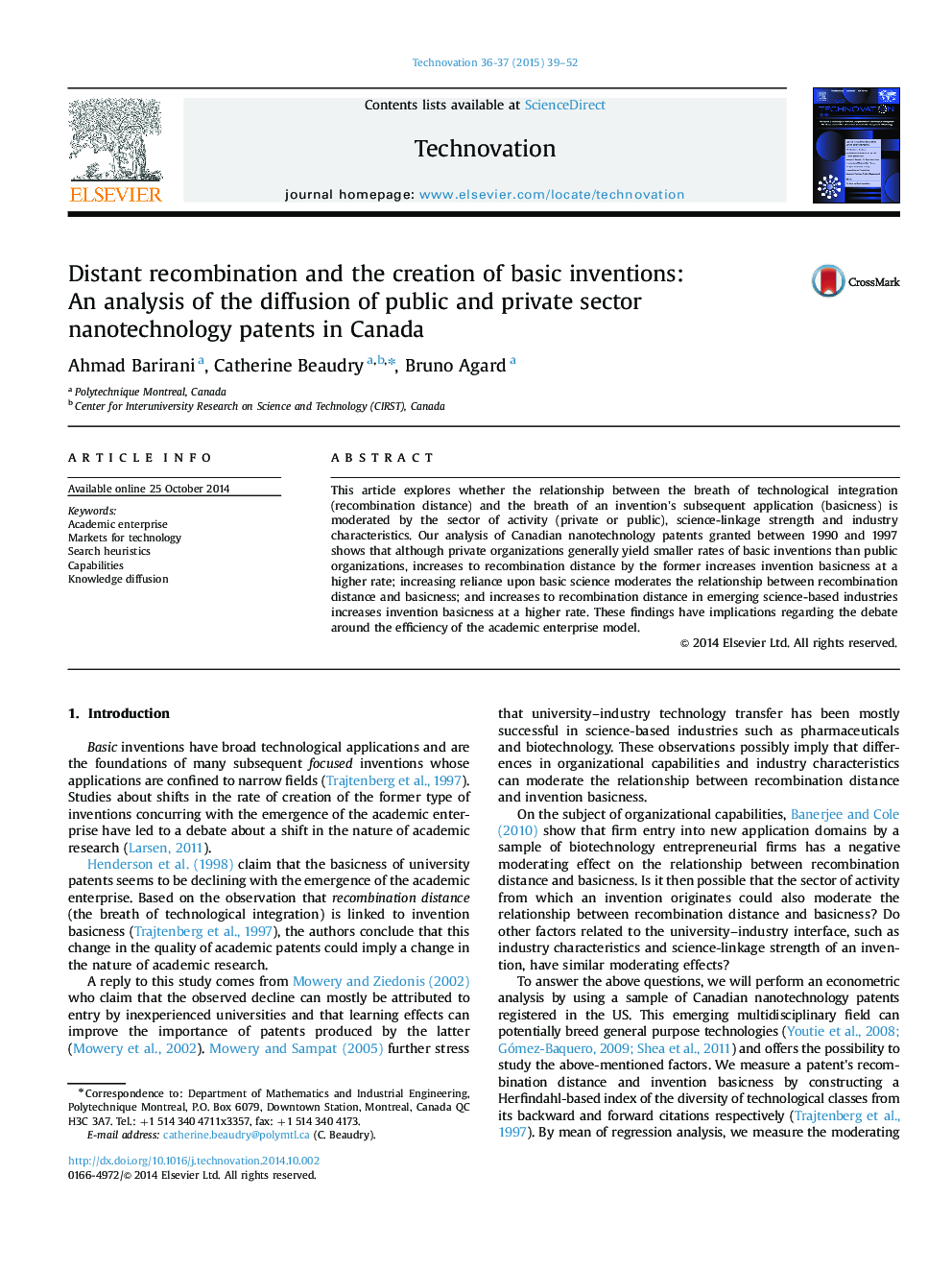| Article ID | Journal | Published Year | Pages | File Type |
|---|---|---|---|---|
| 1021840 | Technovation | 2015 | 14 Pages |
•Private organizations are less likely to produce basic inventions.•Increases to recombination distance by the private sector increase invention basicness at a higher rate.•Increasing reliance upon basic sciences moderates the effect of combining distant technologies.•The combination of distant technologies yields a higher rate of basic inventions in fragmented science-based industries.
This article explores whether the relationship between the breath of technological integration (recombination distance) and the breath of an invention׳s subsequent application (basicness) is moderated by the sector of activity (private or public), science-linkage strength and industry characteristics. Our analysis of Canadian nanotechnology patents granted between 1990 and 1997 shows that although private organizations generally yield smaller rates of basic inventions than public organizations, increases to recombination distance by the former increases invention basicness at a higher rate; increasing reliance upon basic science moderates the relationship between recombination distance and basicness; and increases to recombination distance in emerging science-based industries increases invention basicness at a higher rate. These findings have implications regarding the debate around the efficiency of the academic enterprise model.
